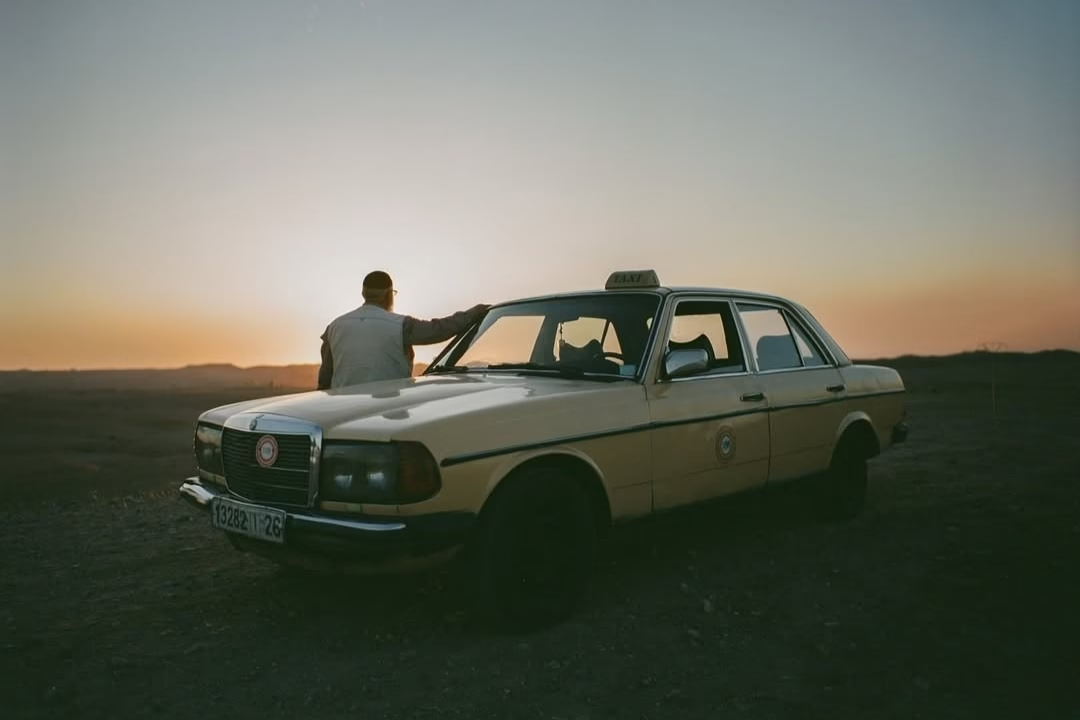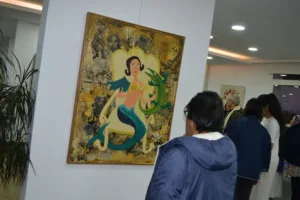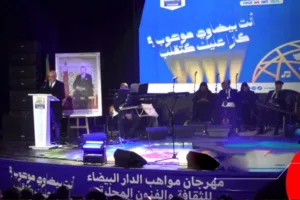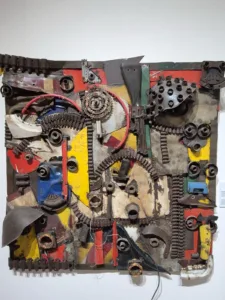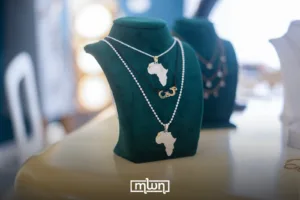Can you believe that the Mercedes “grand Taxi” has its own film now?
Fez– When American filmmaker Matthew Trainor decided to make a short film in Morocco, he didn’t chase desert landscapes or clichés of exotic charm.
Instead, he focused his camera on something quieter, more grounded, and more meaningful to millions of Moroccans: the grand taxi.
Specifically, the iconic beige Mercedes 240D, once the backbone of intercity travel, is now almost extinct.
“Merci Dix”, his 11-minute film shot entirely in Marrakech and released on the art platform Nowness, is a tribute to a vehicle, a profession, and a way of life that’s disappearing fast.
Told through the perspective of Ibrahim, a grand taxi driver with three decades on the road, the film turns a simple daily routine into a story of heritage, memory, and slow, dignified resistance to modernity.
Trainor, based in Los Angeles and known for his visual storytelling in both documentary and commercial work, chose to shoot “Merci Dix” on 16mm film, giving it a textured, analog aesthetic that mirrors the tactile, lived-in quality of its subject.
There’s no dramatization here. Just a man, his car, and a city moving at its own rhythm.
Ibrahim doesn’t narrate his life with nostalgia. He speaks plainly about his job, his passengers, the changing pace of Marrakech, and the quiet extinction of vehicles like his.
Once part of a fleet that dominated Moroccan roads, the 240D is now a rare sight; only six remain in service in the city, he says.
Their gradual disappearance speaks volumes about how cities evolve and what gets left behind.
What makes “Merci Dix” stand out is its emotional intelligence. The car isn’t just a prop; it’s a character.
It holds stories, carries histories, and offers space for fleeting conversations that often linger longer than expected.
In the film, the interior of Ibrahim’s taxi becomes a kind of confessional booth, a place of trust in an increasingly rushed and transactional world.
The title itself, “Merci Dix”, comes from a phrase used by Moroccan taxi drivers, short for “merci dix fois,” or “thanks a lot”, a casual, friendly sign-off now fading along with the taxis themselves.
It’s a subtle nod to a generation, a profession, and a kind of warmth that doesn’t always survive digital disruption.
Trainor’s film doesn’t try to make grand statements. Instead, it observes with precision. It captures a country negotiating change, where efficiency is gaining ground but at the risk of flattening identity.
In Ibrahim’s story, he shows us that heritage isn’t always found in monuments; it often rides quietly in the front seat.
Read also: Morocco Hosts 2025 Spogomi World Cup Qualifier in Casablanca

